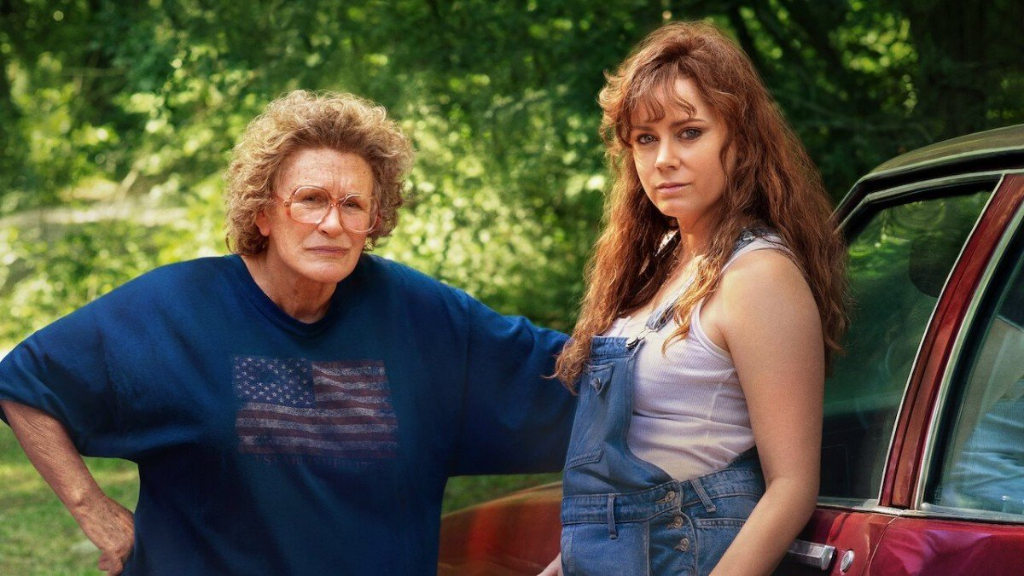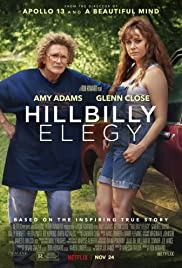Hillbilly Elegy

Ron Howard is often referred to as a “safe pair of hands,” but Hillbilly Elegy, his adaptation of JD Vance’s memoir for Netflix, makes the case for taking out life insurance against the director’s movies. A sickly blob of treacle, trees in golden hour and hard-earned life lessons, Hillbilly Elegy begins with Vance (Gabriel Basso) already struggling to put himself through Yale Law school. His mother Bev (Amy Adams, hoping for her seventh Oscar nomination and unlikely to get it) has overdosed on heroin, forcing JD back to his hometown of Middletown, Ohio, where he must confront his past.
Through flashbacks, we are introduced to the matriarch Mamaw (Glenn Close, hoping for her eighth Oscar nomination and unlikely to get it), who offers life lessons; Close’s actorly statesmanship jibes with the attempt at vulgar realism that Howard attempts here. The film’s vision of people from the Midwest as simple folk with simple desires is like a depiction of Hull and Universal Credit claimants sitting in fields. It’s not merely that each scene is blocked without care for space or geography, or that the dialogue sounds like it was written by a bot still learning to type, rather that Hillbilly Elegy’s sunny-side-up sensibility towards poverty seems designed as an act of benevolent condescension towards the white working class.
As the film attempts to create meaning by cutting back and forth between timelines, one realises that not only is this Ron Howard’s The Tree of Life, but that Vance’s “pull yourself up by your bootstraps” attitude to American sickness is his way of making the story all about him and his own exceptionalism. It’s a white saviour movie about white hillbillies, and one hopes it is Ron Howard’s last crusade into middle America.
BP Flanagan
Hillbilly Elegy is released digitally on demand on 24th November 2020.
Watch the trailer for Hillbilly Elegy here:
























Facebook
Twitter
Instagram
YouTube
RSS